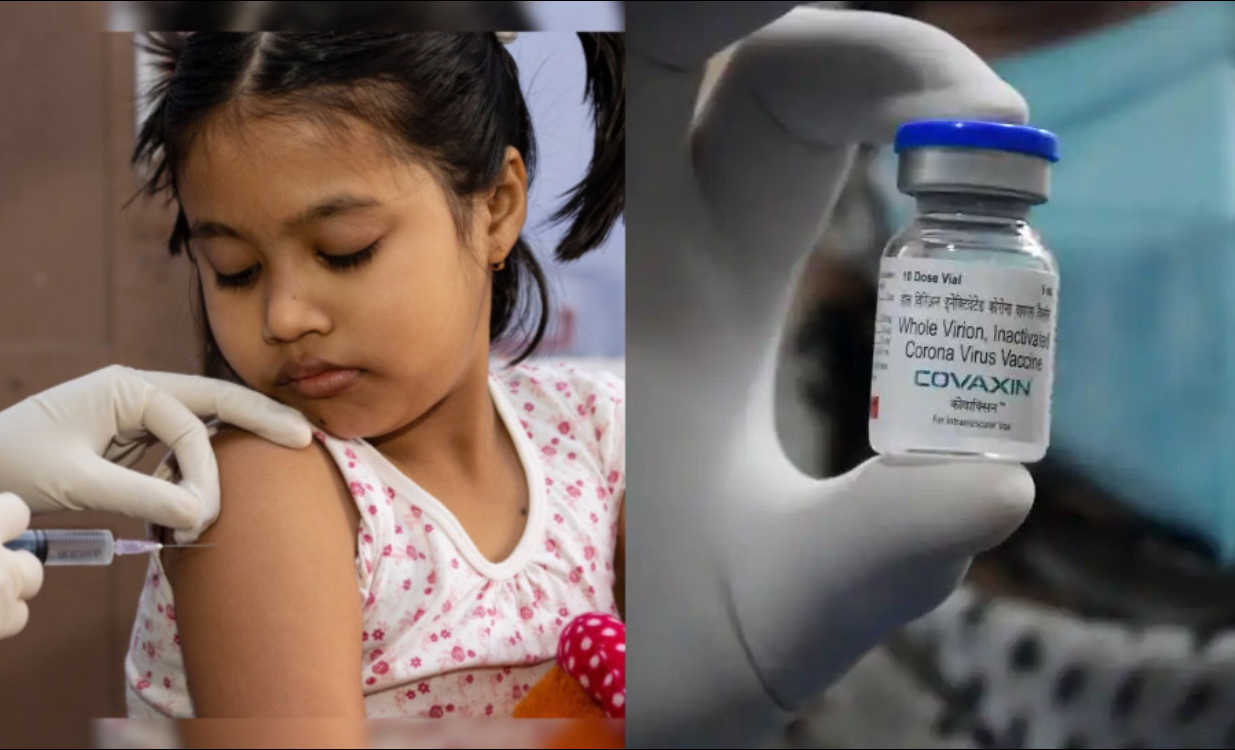Bharat Biotech’s COVID-19 vaccine Covaxin(BBV152) has been recommended for Emergency Use Authorisation (EUA) for 2-18- year-olds by the Subject Expert Committee (SEC) of the Central Drugs Standards Control Organisation (CDSCO).
Covaxin is the country’s first indigenous, whole-virion, inactivated vaccine developed by Bharat Biotech in collaboration with the Indian Medical Research Council (ICMR) and the National Institute of Virology (NIV).
If given the green signal, it will emerge as the first COVID-19 vaccine globally to be used for vaccinating children as young as 2 years. In a statement issued on Tuesday, the company said it had submitted data from clinical trials in the 2-18 age group to the CDSCO. The positive recommendations, after due review by the SEC, were submitted to the Drugs Controller General of India (DCGI).
A senior Central Government official stated that the Hyderabad-based Bharat Biotech had completed Phase-2 and Phase-3 trials of Covaxin on children below 18 in September and submitted the trial data. The trials were done on the age groups of 2-6, 6-12 and 12 -18.
.
Experts maintained that two doses of Covaxincould be administered to children within a gap of 28 days. For adults, the government has set 4-6 weeks between the two shots.
“This represents one of the first approvals worldwide for COVID-19 vaccines for the 2-18 age group,” the Bharat Biotech statement claimed. The company was awaiting further regulatory approvals from the CDSCO prior to product launch and market availability of the vaccine for children.
Dr. Shuchin Bajaj, founder and director, UjalaCygnus Group of Hospitals, highlighted, “India has always been known as a vaccine and a medicine drug producer but never a medicine or a drug developer. This is the first time that a vaccine has been entirely developed and produced in India and its efficacy and safety have been proven to be high so much so that it is now being trialled in children.”
The vaccine would lead to protection of children. “Currently, adults have been vaccinated, but children have been left exposed to the virus. This vaccine will bring about a positive change,” he stressed.
Dr. Bipin Singh, assistant professor, School of Engineering & Technology, BML MunjalUniversity (BMU), noted that the emergency use approval of the vaccine for children aged 2-18 years was promising. It would have been better if the vaccine was first approved for children within the age bracket of 10-18 years. The recommendations were based on a larger and diverse pool of clinical trails data and long-term evaluations, he pointed out.
Dr. (Maj.) Manish Mannan, head of department, Pediatrics and Neonatology, Paras Hospitals, Gurugram, speaking about the availability of the vaccine in the private sector observed that it would be a watch and wait scenario.
“The DCGI has to give its final approval and then vaccination has to begin. As doctors working with children, we will be watching the data closely. I would go slow into the vaccination and will see how the data comes in on the phase four of the trial or when actually the vaccine is being given to children in various parts of the country and various centres. We have to see the response. Even though the number of children involved in the clinical trial is a small number, the results have been encouraging. As the vaccination process starts, we will see how it goes and then we will go ahead and consider using this vaccine,” he remarked.
The World Health Organisation is expected to take a call on Bharat Biotech’s Emergency Use Listing (EUL) application for Covaxin (The Hindu)





